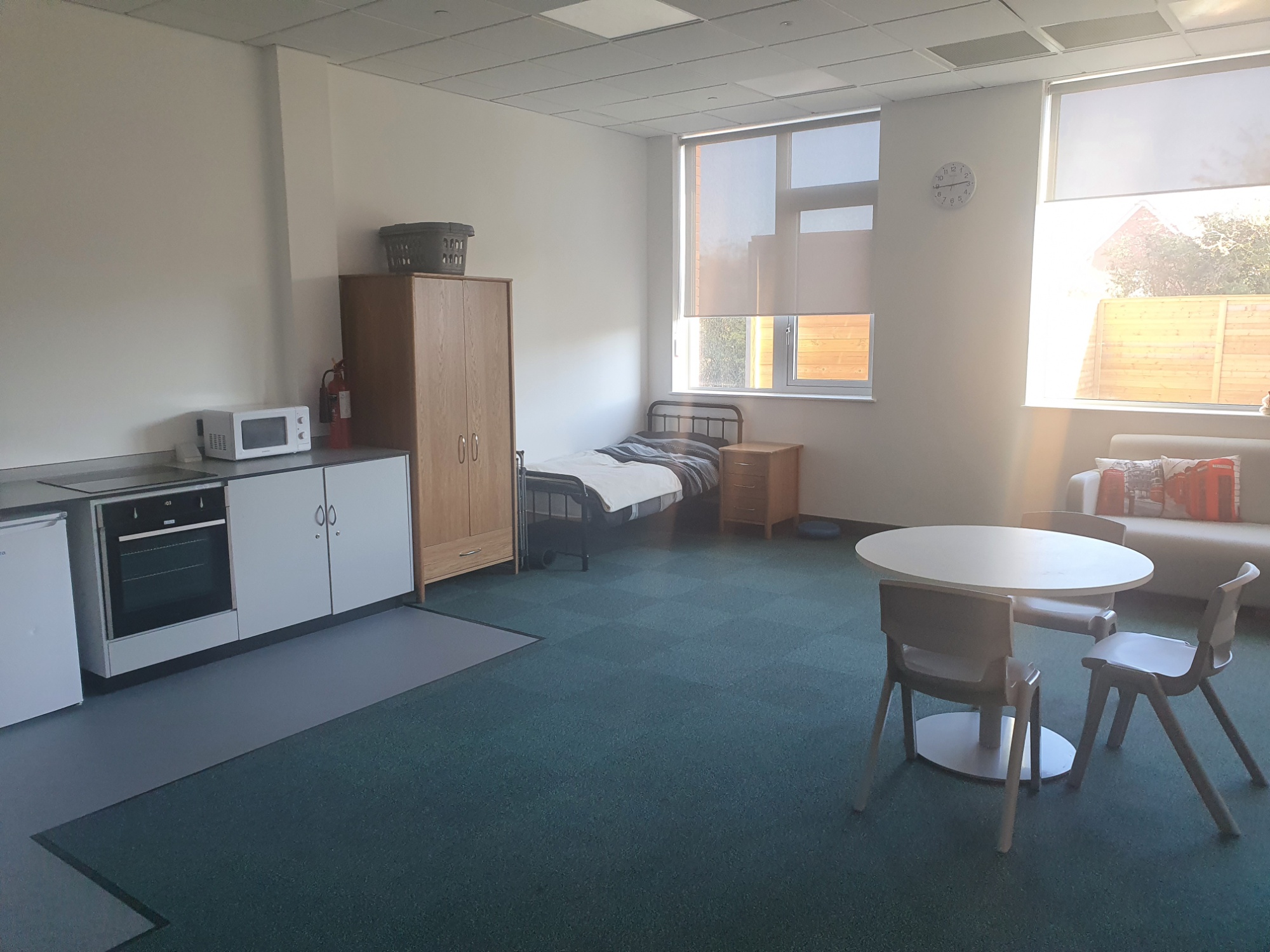Specialist Areas
Hall / Mall
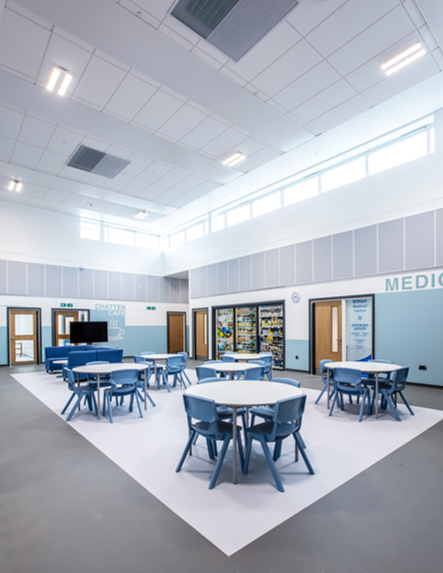 The school hall itself is the centre of the school.p
The school hall itself is the centre of the school.p
This room is surrounded by a range of alternative learning areas described further below.
Our halls sometimes used for staff and parent meetings.
The main purpose of the school hall is to provide a focal point for the school and provide a larger area in which pupils can access a range of learning environments.
Simulation Medical Room
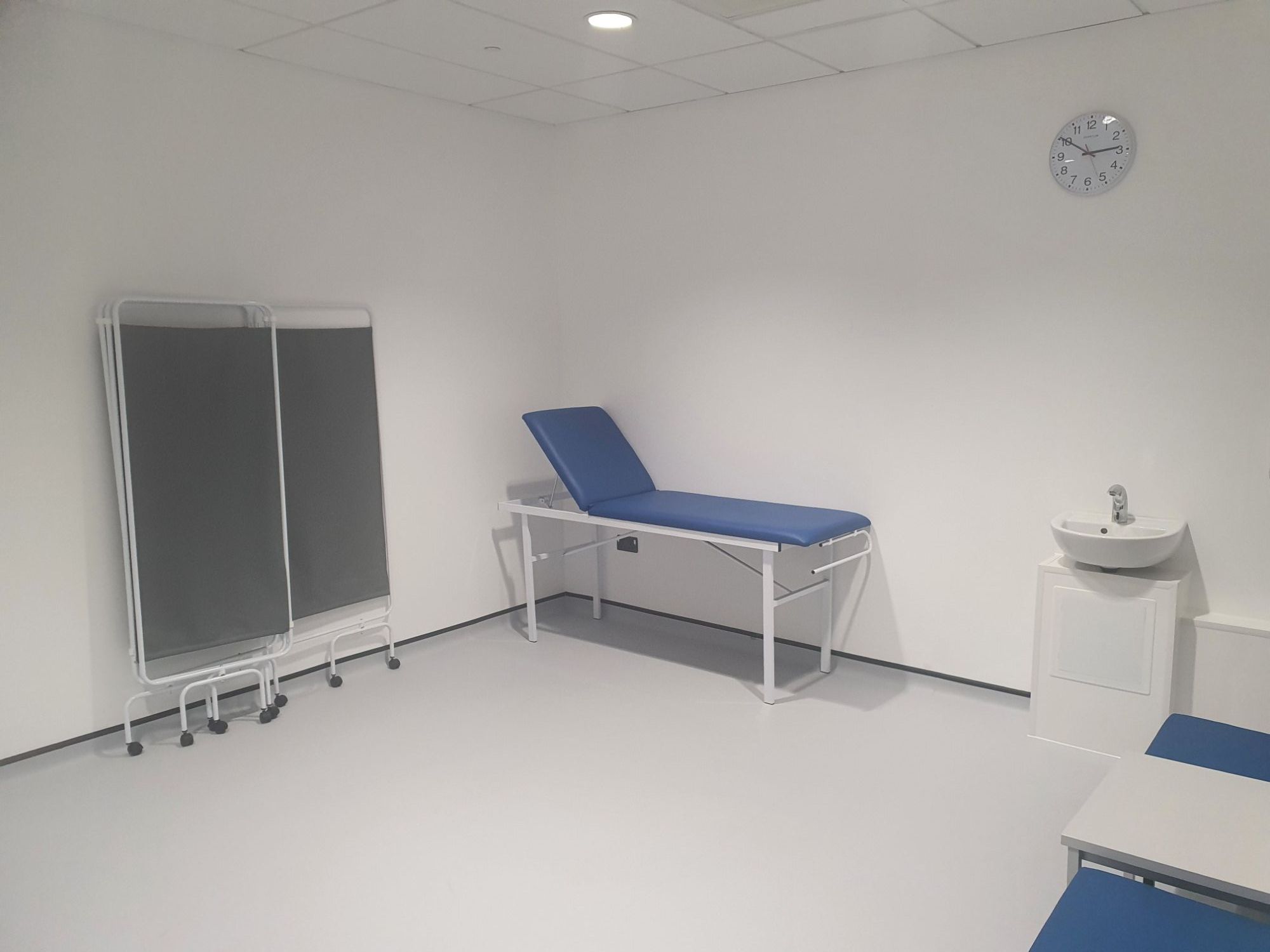 This room is designed to simulate a variety of rooms including:
This room is designed to simulate a variety of rooms including:
-
Dentist
-
Doctor
-
Nurse
-
Hairdressers
This is used to help prepare pupils for appointments in the real version of those environments.
Public toilets
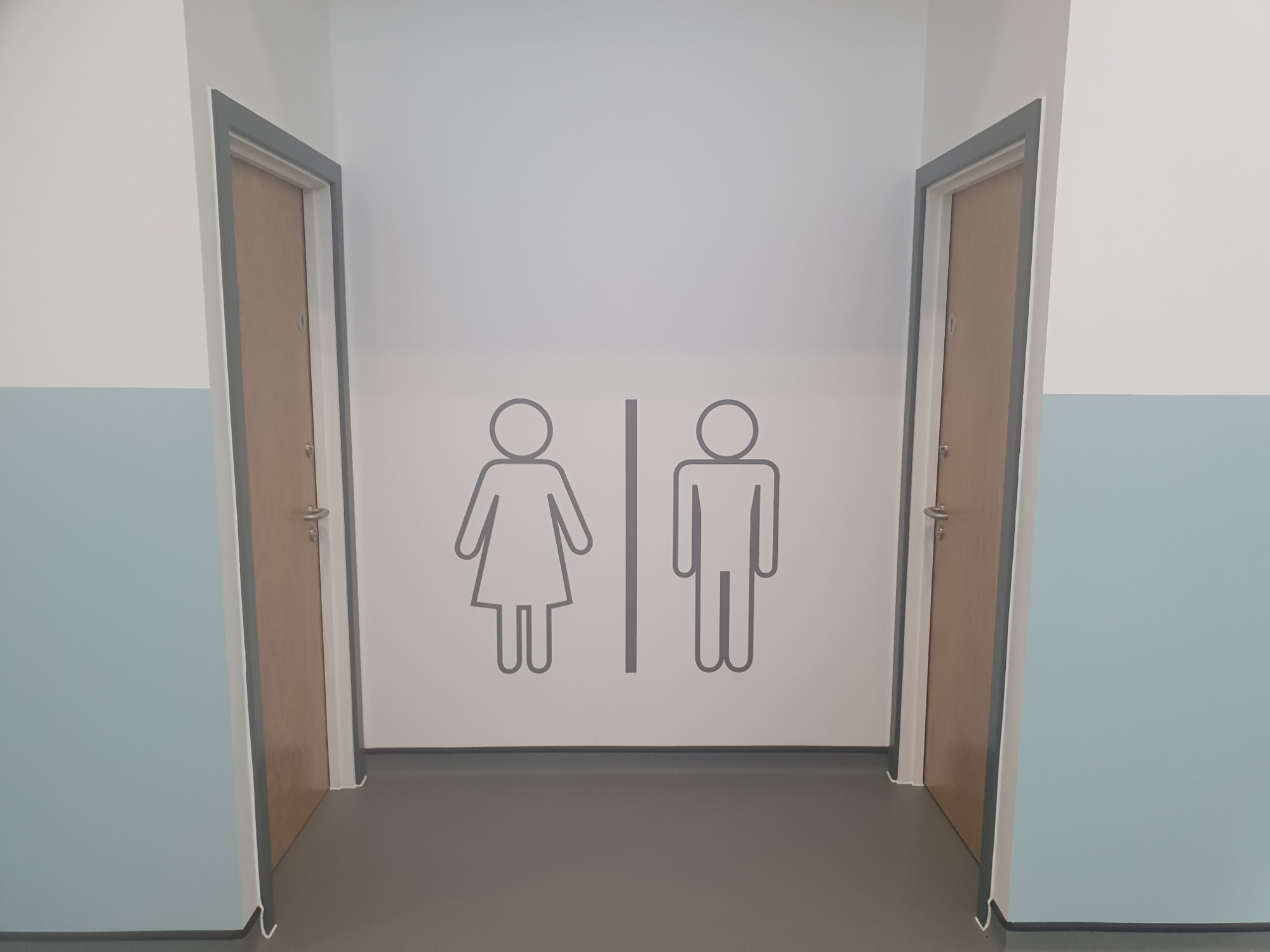 Most toilets in the school are designed to be very friendly to pupils with sensory processing difficulties.
Most toilets in the school are designed to be very friendly to pupils with sensory processing difficulties.
The simulated public toilets will replicate a public toilet experience including hand dryers and separate stalls for males and females..
Gym and music room
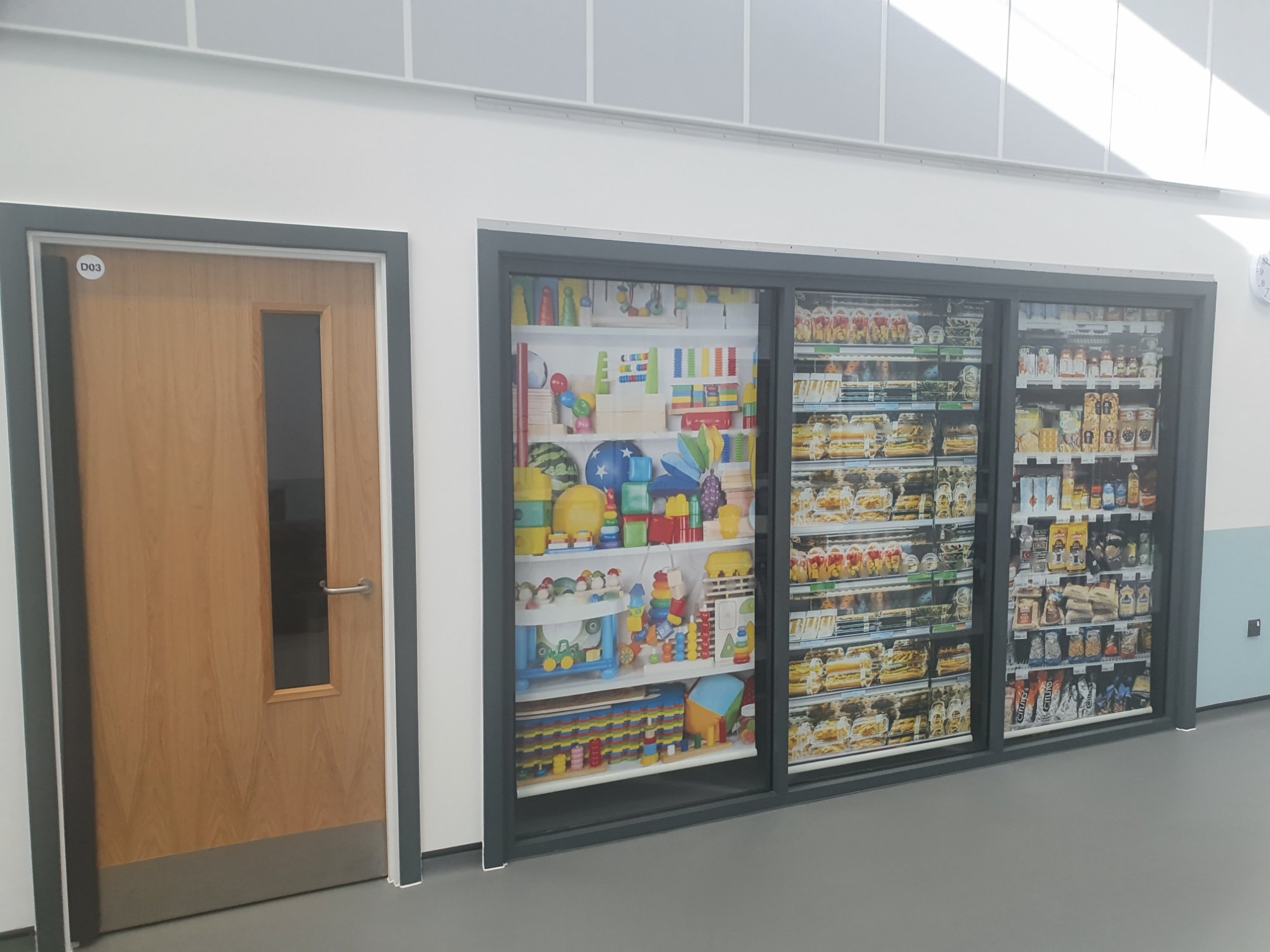 We have two additional spaces in the hall set up to work on specific areas of development. The Gym provides access to cardio training equipment for our pupils to work on physical health and the music room provides a space for pupils to access musical instruments which they enjoy.
We have two additional spaces in the hall set up to work on specific areas of development. The Gym provides access to cardio training equipment for our pupils to work on physical health and the music room provides a space for pupils to access musical instruments which they enjoy.
Court Yard
In addition to the main play areas we are also lucky enough to have a courtyard in the centre of the school.
This area is located next to our cafe' and provides an outdoor seating area.
This space is being developed into a sensory garden area that will assist in working on communication and interaction skills.
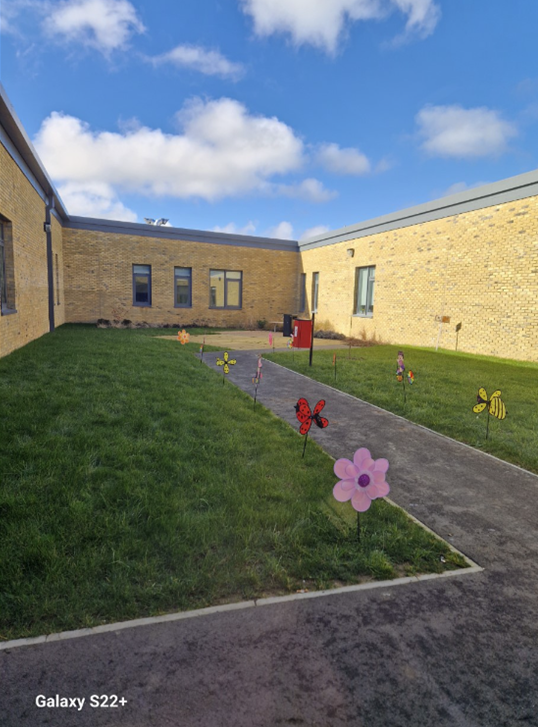
Outdoor Areas
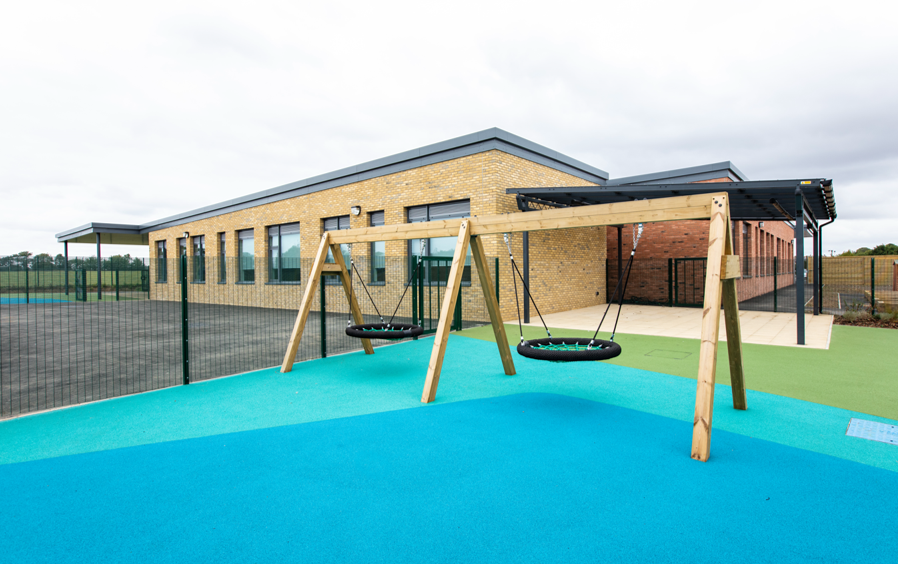 Each section of the school has it's own bespoke outdoor play area designed specifically for that group.
Each section of the school has it's own bespoke outdoor play area designed specifically for that group.
Each area has at least three pieces of equipment designed to provide a different physical and/or sensory experience.
We also have a shared hard play area which can be used for any number of activities or simply as a quiet space.
The school benefits from a shared field and a horticultural area.
Calm Rooms and Therapy Spaces
The school is equipped with numerous calm rooms and therapy spaces. Some of these spaces are exceptionally simple, such spaces are designed to provide a calming environment for children who need on or a 1:1 working room when pupils are easily distracted.
Therapy spaces may vary depending on who is currently using them.
Classrooms
Classrooms at Chatten are especially designed to support learning. This includes:
-
1:1 spaces designed to reduce distractions and provide effective instruction
-
Group learning spaces designed for small groups
-
A simple learning wall
-
Built in storage to improve communication opportunities
-
Quick access to other learning spaces
Individual classrooms will also be adapted to the needs of the pupils in the class.
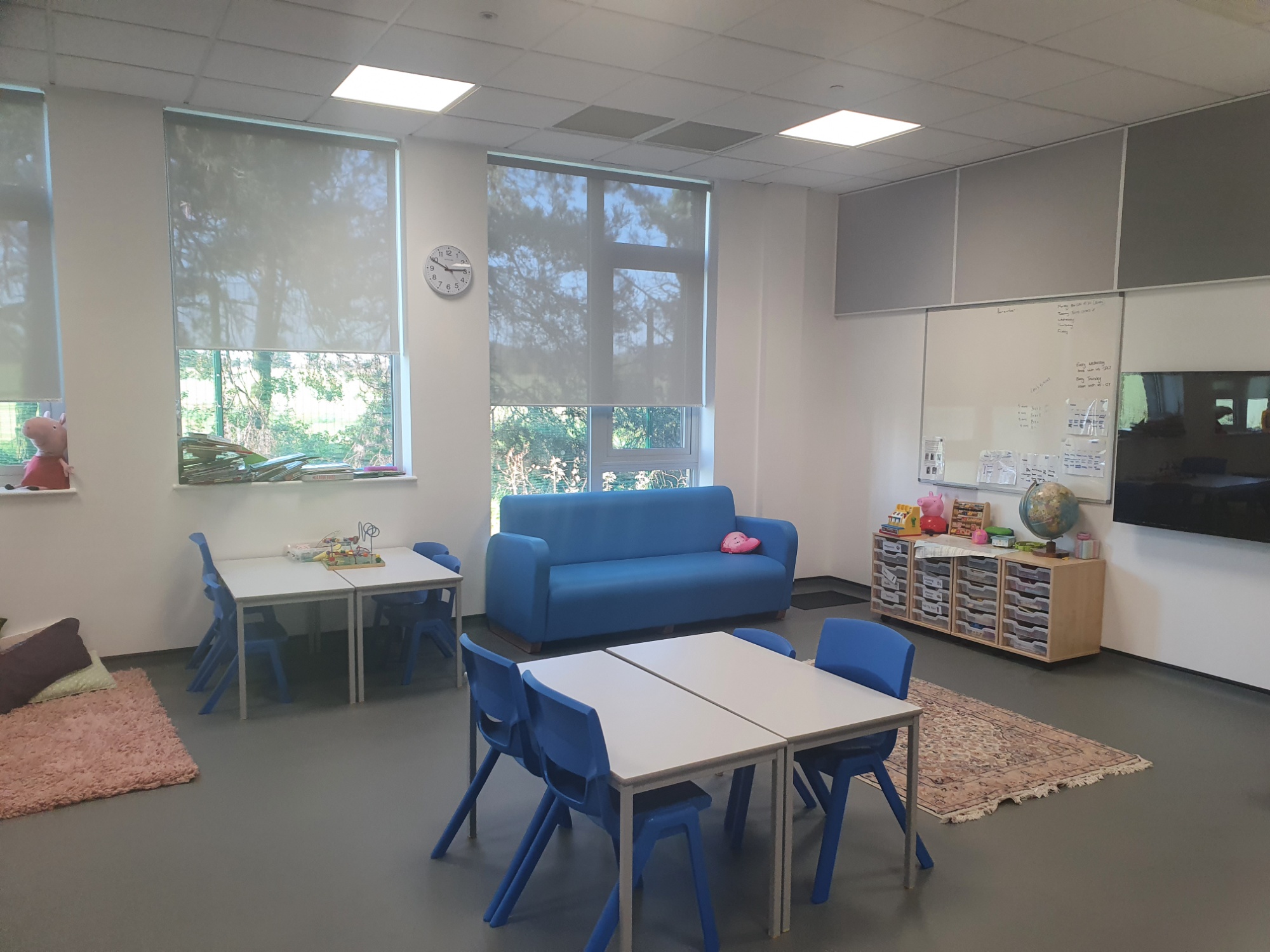
Multi-Sensory Rooms
Each of the three school sectors include a purpose built multi-sensory room.
Each of these rooms differs and is designed for the specific age group that it caters for.
Multi-sensory rooms can be used for any number of learning and therapeutic activities including:
-
Communication skills
-
Intensive interaction
-
Sensory stories
-
Academic skills acquisition
-
Sensory play
-
Calming
-
PECS
-
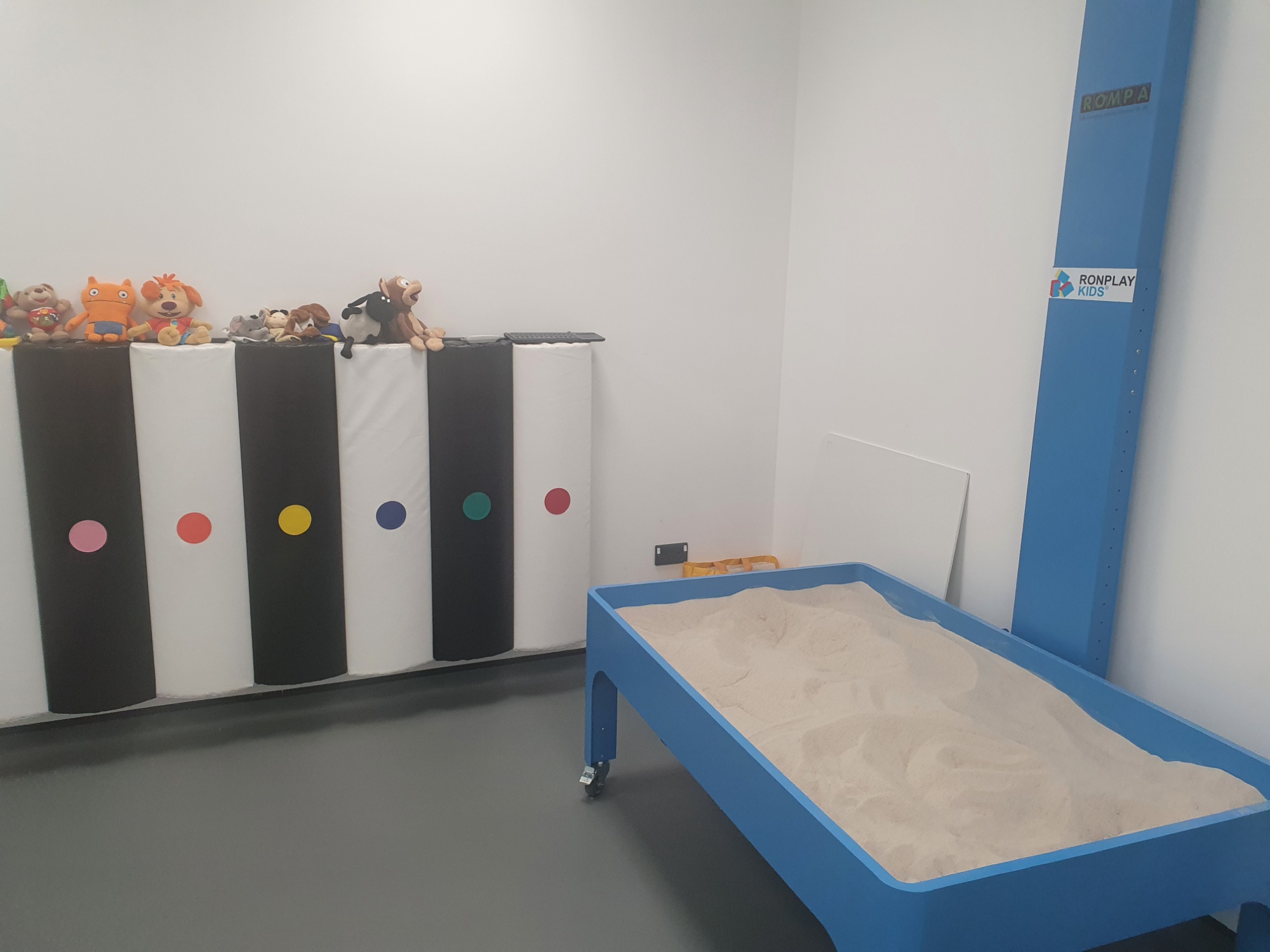
Soft Play Rooms
There are two soft play rooms in the school. One is designed for our youngest sector and the other is shared between sectors two and three.
These include a number of exciting and engaging pieces of apparatus including interactive panels and light up ball pits.
Soft-play is used for a number of educational activities including activities linked to communication and physical activities.
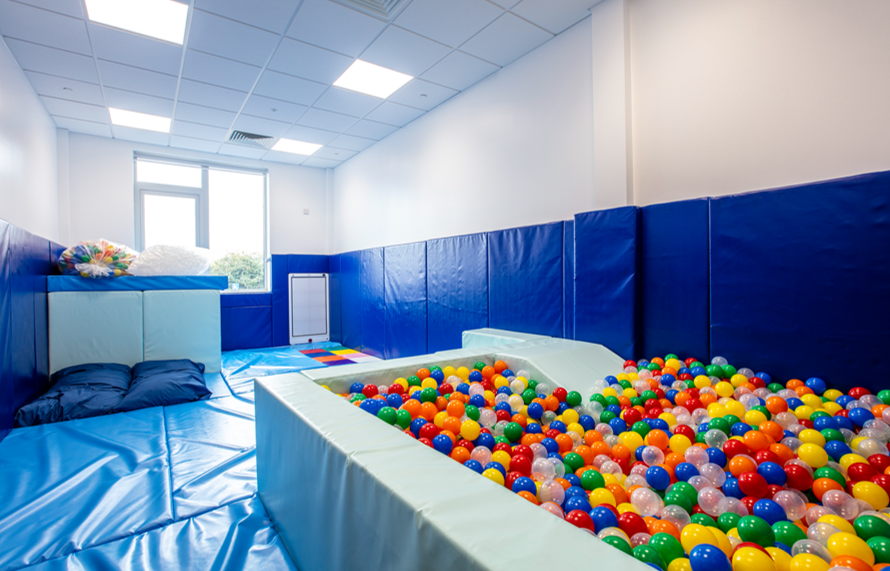
Life Skills Rooms
Each section of the school is equipped with it's own specially designed life skills room.
These rooms are designed to very loosely replicate a home environment with a kitchenette, bed and living area.
These are important rooms for helping us teach our children important life skills such as morning routines, cooking simple meals, using house hold audio visual equipment, dressing and tidying cleaning.
The way pupils use this room varies depending on their individual programme.
